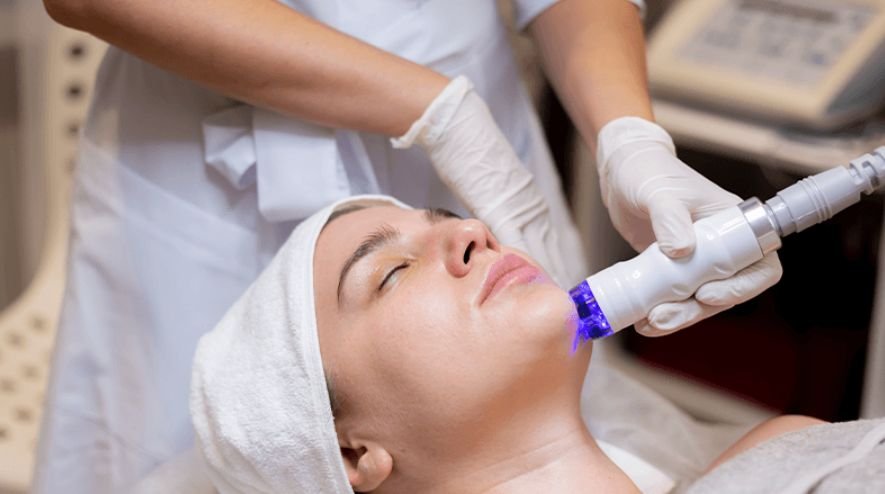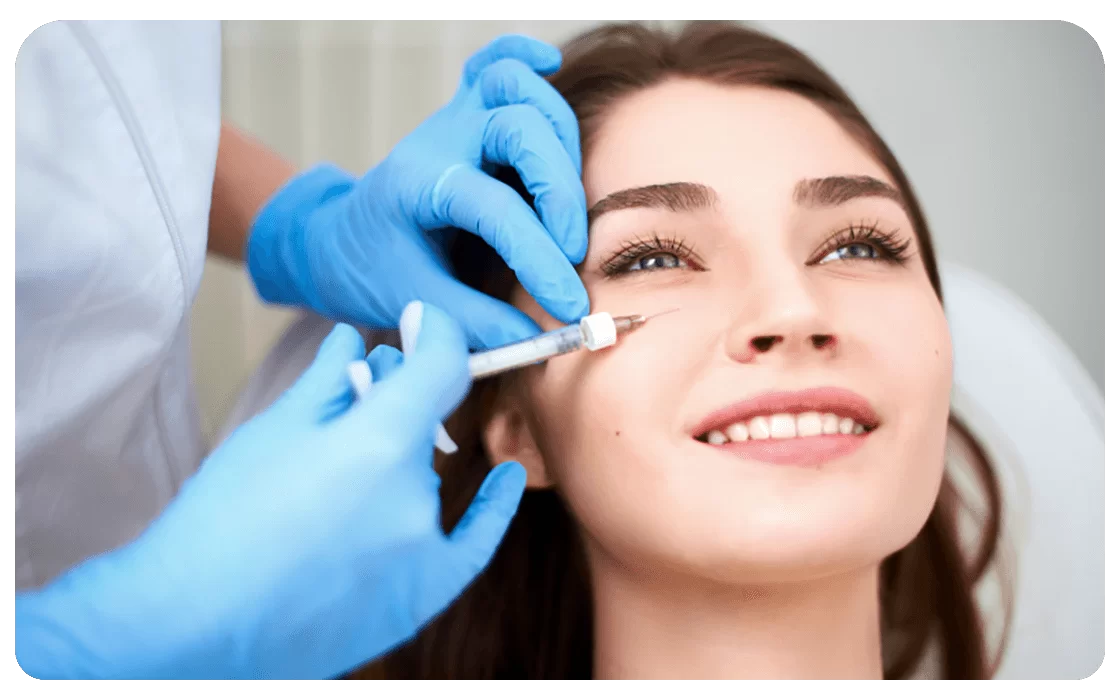Psoriasis is a chronic skin condition that affects millions worldwide, causing red, itchy, and scaly patches that can greatly impact one’s confidence and quality of life. At Dynamic Life Clinics, renowned in Dubai for offering the best cosmetic and dermatological procedures, patients can find expert-led solutions tailored to their specific skin needs. With cutting-edge technology, personalized treatment plans, and compassionate care, relief from psoriasis is no longer just a hope—it’s an achievable reality.
Understanding Psoriasis
Psoriasis is more than just a skin condition—it’s an immune-mediated disorder. It occurs when the skin cells multiply at an accelerated rate, leading to a buildup of skin layers. This overproduction causes visible symptoms such as flaking, scaling, and inflammation.
Common Characteristics of Psoriasis:
- Raised, inflamed patches of skin
- Silvery-white scales
- Itching or burning sensation
- Dry, cracked skin prone to bleeding
- Flare-ups triggered by stress, cold weather, or certain medications
Types of Psoriasis
Psoriasis is not one-size-fits-all; there are several distinct types, each with unique symptoms and treatment approaches.
| Type | Description | Common Areas Affected |
|---|---|---|
| Plaque Psoriasis (Psoriasis Vulgaris) | Most common form; raised, red patches with silvery scales | Elbows, knees, scalp, lower back |
| Guttate Psoriasis | Small, drop-shaped sores; often triggered by infections | Trunk, arms, legs |
| Inverse Psoriasis | Smooth, red patches in skin folds | Under breasts, groin, armpits |
| Pustular Psoriasis | White pustules surrounded by inflamed skin | Hands, feet, generalized body areas |
| Erythrodermic Psoriasis | Severe, widespread redness, scaling, and shedding | Entire body surfaceC |
Causes and Triggers
While the exact cause is unknown, psoriasis is linked to immune system dysfunction, specifically the overactivation of T-cells.
Common Triggers Include:
- Genetic predisposition
- Stress and anxiety
- Cold and dry climates
- Skin injuries (Koebner phenomenon)
- Certain medications (beta-blockers, lithium)
- Infections (especially streptococcal throat infections)
Goals of Psoriasis Treatment
Since psoriasis is a chronic condition with no definitive cure, treatment focuses on:
- Reducing inflammation
- Slowing down excessive skin cell production
- Relieving itching and discomfort
- Improving the skin’s appearance
- Preventing flare-ups
Psoriasis Treatment Options
Dynamic and effective treatment requires a tailored approach based on severity, type, and patient health history.
Topical Treatments
These are applied directly to the skin and are most effective for mild to moderate psoriasis.
- Corticosteroid Creams – Reduce inflammation and itching
- Vitamin D Analogues (e.g., Calcipotriol) – Slow skin cell growth
- Coal Tar Preparations – Reduce scaling and itch
- Salicylic Acid – Promotes the shedding of dead skin cells
- Moisturizers and Emollients – Keep skin hydrated and reduce scaling
Phototherapy (Light Therapy)
Controlled exposure to ultraviolet (UV) light can significantly reduce psoriasis symptoms.
- UVB Phototherapy – Effective for large areas; slows skin cell production
- PUVA Therapy – Combines psoralen (light-sensitizing medication) with UVA light
- Excimer Laser – Targets small, stubborn patches
Systemic Medications
For severe psoriasis, oral or injectable drugs that work throughout the body may be prescribed.
- Methotrexate – Reduces skin cell production and suppresses inflammation
- Cyclosporine – Controls the immune response
- Acitretin (Oral Retinoid) – Normalizes skin cell growth
- Biologic Therapies – Target specific immune system pathways (e.g., adalimumab, ustekinumab)
Lifestyle and Self-Care
In addition to medical treatment, daily skin care and healthy habits can minimize flare-ups.
Self-Care Tips:
- Keep skin moisturized
- Use gentle, fragrance-free cleansers
- Manage stress through meditation or yoga
- Avoid smoking and excessive alcohol consumption
- Follow a balanced diet rich in anti-inflammatory foods
Comparing Treatment Approaches
| Treatment Type | Best For | Advantages | Considerations |
|---|---|---|---|
| Topical Treatments | Mild cases | Easy to use, minimal side effects | Requires consistent application |
| Phototherapy | Moderate to severe cases | Non-invasive, effective | Requires multiple clinic visits |
| Systemic Medications | Severe, resistant cases | Targets the root cause | May have significant side effects |
| Biologics | Chronic, severe cases | Long-term relief, highly effective | High cost, requires monitoring |
Preventing Psoriasis Flare-Ups
While not every flare-up can be avoided, adopting preventive measures can greatly reduce their frequency and severity.
- Identify and Avoid Triggers: Keep a symptom diary to track flare-up causes.
- Moisturize Regularly: Dry skin is more prone to irritation.
- Stay Active: Exercise helps reduce stress, a major trigger.
- Protect Skin: Use sunscreen and avoid injuries.
- Follow Treatment Plans: Consistency is key to controlling symptoms.
Living with Psoriasis
Psoriasis can be challenging both physically and emotionally. Beyond the visible symptoms, it can affect mental health, self-esteem, and daily activities. Support groups, counseling, and patient education play a vital role in improving overall quality of life.
FAQ’s
Is psoriasis contagious?
No, psoriasis is not contagious. It is an immune-mediated condition and cannot be passed from person to person.
Can psoriasis be cured permanently?
Currently, there is no permanent cure. However, treatments can manage symptoms effectively and help achieve long-term remission.
How long does it take for psoriasis treatment to show results?
This varies depending on the treatment type. Topical treatments may show improvement within weeks, while biologics may take a few months.
Can diet affect psoriasis symptoms?
Yes. A balanced diet rich in anti-inflammatory foods (such as fish, vegetables, and whole grains) can help reduce flare-ups.
Can stress really make psoriasis worse?
Absolutely. Stress is a well-known trigger for flare-ups. Managing stress through relaxation techniques can help.
Conclusion
Psoriasis may be a lifelong condition, but it doesn’t have to control your life. With advanced medical solutions, personalized care, and consistent management, symptoms can be greatly reduced, and quality of life restored. By understanding the condition, avoiding triggers, and following a tailored treatment plan, individuals with psoriasis can achieve healthier, more comfortable skin—and the confidence that comes with it.
















Leave a Reply